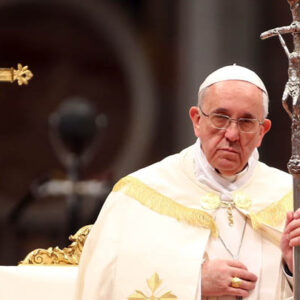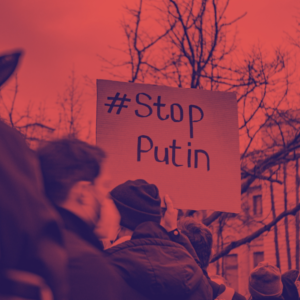Source >> International Viewpoint
Since mid-April, there has been a real change of pace in the social mobilization, which is exerting less pressure on Macron and his government. But hostility to pension reform, hostility to Macron and his government, has hardly diminished and all polls indicate a growing decline in public confidence and an end-of-reign atmosphere as Macron enters only the second year of his mandate and is unable to find a majority to support his government, among neither the population nor MPs.
Macron was able to promulgate his law on 14 April, after obtaining the blank cheque of the Constitutional Council and even avoiding the pressure that could have been exerted by the process of a referendum of shared initiative (RIP). [1] The street mobilizations continued during the month of April and since then, with local rallies, especially during visits to cities by ministers or Macron himself. The bans, provocations and multiple examples of police violence did not prevent the concerts of pots and pans and the presence of hundreds of demonstrators during these visits. So much so that Darmanin (Minister of the Interior) preferred on May 6 to deny that he was coming to inaugurate a city centre in the North of France, finally turning up on the sly; all this so as not to have to confront a concert of pots and pans.
The inter-union coordination had decided to make 1 May an unprecedented unitary initiative. In fact, it was by far, with 2.3 million demonstrators according to the CGT and 300 demonstrations across the country, the most massive May Day in the last 30 years, apart from May 1, 2002, which took place on the eve of the second round of the presidential election between Chirac and Le Pen: the demonstration was transformed into an anti-fascist wave of more than two million people in the streets. The last May Day marked by trade-union unity, in 2009 at the heart of the financial crisis, had mobilized “only” 465,000 people according to the police, against 782,000 this year, according to the same source. This 1 May therefore represented a significant revival of mobilization, returning to a level comparable to the large demonstrations of 23 and 28 March, despite the promulgation of the law, despite the rejection of the RIP and in the absence of a renewable strike movement. This dynamic is also registered by all the opinion polls, which show that 60 per cent of the population want the mobilisation against the reform to continue.
May Day 2023 was therefore anything but a lap of honour, with a stimulating combativeness in the demonstrations and the determination not to turn the page. This goes hand in hand with “the 100 days of zbeul” [2] a national competition between all the initiatives of concerts of pots and pans and actions against the government, at the initiative of the Union syndicale Solidaires and relayed on social networks, expressing the opposite of Macron’s commitment to give himself “100 days to act and get out of the crisis, 100 days of appeasement”, a commitment made in his speech on 17 April.
The government, even if Macron speaks of appeasement, was especially represented on 1 May by the relentlessness of the police against the demonstrations, as if they thought that the clouds of tear gas could mask the scale of the rallies. Street doctors counted 590 injured among the demonstrators and passers-by, including 118 severe cases who had to be evacuated to emergency services. But all the media channels banded together to headline and denounce the “violence of the wreckers”, and the injured among the police, seeking to hide both police violence and the social importance of the demonstrations.
Macron and his government are currently emerging from this situation in a bad position. While Bruno Le Maire, the Minister of the Economy, strives to present a solid economic policy and a stable government to the ECB and the rating agencies, one of the three main ones (along with Moody’s and Standard & Poors), the Fitch agency, has just downgraded the rating of France from AA to AA-, at the end of April, two levels below Germany. As instruments of liberal capitalism, these agencies assess the confidence that investors and buyers of government debt securities can have. Fitch sanctions “a high level of budget deficit and public debt and a social climate detrimental to a consolidation policy”. However, the pension reform was precisely presented as a guarantee of budgetary management rigour! This ingratitude will therefore undoubtedly lead to an increase in interest rates for French government debt securities.
The MEDEF (employers’ organization), scalded by Macron’s inability to keep the situation under control, trumpets that he manages very well to dialogue with the unions on the sharing of value, teleworking or vocational training and even to obtain the agreement of the CFDT and the CFTC on the “sharing of value”, that is to say all the mechanisms that exclude wage increases in favour of combinations of profit-sharing and participation. Elisabeth Borne’s government would therefore like to take up the challenge and give itself the image of an opening to the union leaderships, after having flouted them for three months.
At the beginning of May, it announced that it was issuing invitations to trade unions to discuss all the projects to be implemented, a scenario that does not quite manage to hide the refusal of any social measures. In all areas, health, education, immigration, everything announced by the government goes in the direction of a hardening of security measures, a restriction of social budgets.
Borne divided the inter-union coordination, discarding the “non-representative” unions (Solidaires, FSU and UNSA) and proposed a round of meetings on 16 and 17 May to the other five confederations (CFDT, CGT, Force ouvrière, CFE-CGC, CFTC), receiving them separately “without a precise agenda”. The government’s goal is obviously to break the trade union front and see if there is not an opening of negotiations that would restore the social image of the government.
The CGT, the CFDT, FO, the CFTC and the CGC will therefore each go separately to Matignon. In a sign of the fragility, despite everything, of the coordination, they are not acting around a common platform of demands, other than the reaffirmation of the demand for the withdrawal of the law raising the retirement age to 64.
Furthermore, the national inter-union coordination is calling for a new day of mobilization on 6 June. The explicit purpose of this day is to support a new parliamentary initiative planned for 8 June by the LIOT group, an independent centrist group, which was already at the initiative of the motion of censure on 20 March. The initiative, using LIOT’s parliamentary slot, consists of a bill repealing the postponement of the legal retirement age to 64. Given the balance of power, a majority vote for this project is not impossible and this would obviously be a new slap in the face for the government and the assurance of an imbroglio in the following days and weeks.
But the government could count on its Republican semi-allies in the Senate to undo this vote and on the blocking role of a joint parity committee before a return to the Assembly. Certainly the hypothesis of such a vote exists, but the essence of the problem is that the national coordination should not have as its only perspective in the coming weeks and even months this hypothetical vote, in the same way as hope was placed in the implementation of the RIP a few weeks ago. In fact, the coordination is not giving any perspective to the social movement.
Yet the vigour of this movement, its depth and its persistence should make possible the establishment of a unitary platform of social demands carried forward by the coordination; demands which, beyond the question of pensions, have been the basis of the mobilizations, on the questions of the cost of living and wages, on health, education, public services, among others. Unfortunately, the other side of the coin of a unitary coordination that has rhythmed the movement since January, has been the weakness of an autonomous dynamic of local or sectoral coordinations, giving their own rhythm and their own content. This is what the CGT unions of Energy, Chemicals, Ports and Docks, Roads, mainly, did and it is what the coordination at the SNCF did in March.
Today the energy of local activists appears in the concerts of pots and pans and the welcoming committees for ministers, but this is not enough to give a new dynamic that could provide a general perspective of struggle to a social movement that is not exhausted.
The other question, a corollary of the previous one, is the inability of the NUPES and its components to rely on this powerful social movement to lead the debate on demands to fight against capitalist neoliberalism, in the extension of the refusal of retirement at 64. The NUPES is not seeking to use the present conjuncture to propose that the trade union and political activists of the movement get together locally in unitary structures to debate, act and build a force that can pose an alternative to Macron and the far right. Unfortunately, a low level of self-organization in workplaces and at the local level has also been the hallmark of the movement since January. We must regretfully note the small number of initiatives for unitary debates between political and trade union forces in recent months.
Today the components of the NUPES, instead of debating unitary local initiatives as an extension of the movement, have their eyes on the next European elections in 2024, where the components other than La France Inosumise (PS, EELV, PCF) hope to “redivide the cake”, to readjust the balance of power on the left.
However, the urgency should be to open the road to a united movement to fight Macron’s capitalist policies, while social anger is well and truly present among the popular classes. A year ago, the NUPES succeeded in occupying the ground on the left during the general elections. But since then, although the deputies of the NUPES have been the parliamentary relay of the social movement, no dynamic of a unitary and combative movement has been created locally or nationally. This is one of the elements that explains why, paradoxically, the NUPES, as a political force, is not deriving any political benefit from this social movement, while the far right, the RN, is building itself on the crisis of the right and a polarization of right-wing abstentionist sectors.
Thus both at the trade union level and the political level, we are in a moment when the social and popular movement of resistance to Macron is suspended in a vacuum. The urgency of the coming weeks is therefore to occupy a social and political space so that the activists who have fought together in recent months can come together and act.
FOOTNOTES
[1] See previous IVP articles on France.
[2] An Arabic word meaning “disruption” or “chaos”.
Art (53) Book Review (121) Books (114) Campism (31) Capitalism (65) China (79) Climate Emergency (98) Conservative Government (90) Conservative Party (45) COVID-19 (44) Creeping Fascism (35) Economics (40) EcoSocialism (55) Elections (83) Europe (46) Event Video (28) Far-Right (34) Fascism (56) Film (49) Film Review (68) Fourth International (30) France (69) Gaza (59) History (34) Imperialism (98) Israel (119) Italy (45) Keir Starmer (52) Labour Party (110) Long Read (42) Marxism (47) Marxist Theory (32) Migrants (34) Palestine (164) pandemic (78) Police (31) Protest (151) Russia (340) Solidarity (141) Statement (48) Trade Unionism (139) Trans*Mission (31) Ukraine (345) United States of America (132) War (368)
Latest Articles
- Pope Francis’s failed ‘realignment’Brais Fernández, a member of the editorial board of Viento Sur (Wind from the South) and a member of the Anticapitalistas in the Spanish State, comments on the passing of Pope Francis
- Reform – Labour is feeding the monsterThe centre cannot hold! In the wake of Reform’s massive gains in local elections, Dave Kellaway investigates the new political landscape.
- Manifesto for an ecosocialist revolutionABOUT THE BOOKThe race for profit is widening social inequalities and destroying the planet. As the productivist catastrophe is worsening day by day, democratic and revolutionary socialism must be rethought to meet needs within ecological limits. This Manifesto adopted by Fourth International in February 2025 by the Fourth International raises the banner of a civilisational … Read more
- How to hear a rant and stay calmAs people invested in the future of our societies and the world, we will frequently encounter rants. Liz Thompson investigates how we can best respond.
- Mobilise to free the Ukrainian children abducted by RussiaChristopher Ford reports on a crisis that demands global solidarity.






